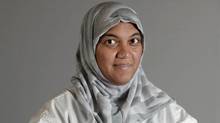
Beyond tolerance lies true respect
Originally published in The Globe and Mail, February 28, 2013
Because simple tolerance, mere tolerance, is not enough. We need genuine and deep respect for each and every human being notwithstanding their thoughts, their values, their beliefs, their origins.
These words, spoken by Justin Trudeau during a moving eulogy for his late father, resonated deeply with Canadians, for they spoke to our shared humanity. Given recent flashpoints of aboriginal self-assertion, linguistic tensions in Quebec and the growing income divide, it is a message worth revisiting.

Todd L. Pittinsky of Stony Brook University, currently a senior lecturer at Harvard, and author of Us Plus Them, has studied the dual concepts of recognizing and embracing differences. He has coined the term “allophilia” to describe positive intergroup dynamics that supersede tolerance.

He believes that current anti-racism/diversity training programs do not tap in to the latent potential of individuals to develop strong bonds with those outside their own “group.” These programs are often ambivalent about differences. He recalls attending a corporate diversity training session in which the first slide, “Diversity Is Our Strength,” was contradicted by a later slide, “We Are All the Same.” They also ignore scientific research about innate allophilic characteristics, and the strong interpersonal cohesion that develops from them.
According to Prof. Pittinsky’s research, five components provide a measure of allophillia: having positive feelings toward members of the other group (affection); feeling comfortable and at ease with members of the other group (comfort); believing there is a close connection with members of the other group (kinship); seeking interactions with members of the other group (engagement); and finally, feeling impressed and inspired by members of the other group (enthusiasm).
He has seen allophilic initiatives blossom at the grassroots. For example, about 10 years ago, Maine received an influx of Somali immigrants. “They were about as ‘other’ as possible in one of the ‘whitest states in America,’” he remarked. Then, members of a local adult-learning centre organized potluck dinners for American and Somali families, fostering cross-cultural friendships and bonds. They tried each other’s dishes and Somalis taught Americans to tie head scarves and paint henna tattoos. “The two groups were still very different,” he observes, “but they enjoyed their differences.”
Governments are starting to listen to Prof. Pittinsky’s approach. Minnesota recently sponsored a state-wide celebration for Martin Luther King Jr. Day with the focus on “moving beyond tolerance to allophilia.”
There are economic ramifications, too. “The desperate search for economic growth will put added pressure on organizations, public and private, to finally get serious about diversity in the workplace as an engine of innovation – not just as window-dressing,” says Prof. Pittinsky, adding, “That can work, but not without allophilia.”
Religious differences, within and between countries, may become a source of tension. However, Prof. Pittinsky believes that if North American religious leaders promote allophilia, rather than tolerance, deep social bonds can develop.
The view of religion as a source of social cohesiveness may seem counterintuitive. Yet, according to current research, attachment and identification with one’s own group enhances positive disposition toward others. Problems occur when leaders encourage an inward focus and outward animosity at the expense of others.
Is this a problem in Canada?
According to the 2011 Focus Canada survey by the Environics Institute, 79 per cent of Canadians profess a belief in God or “universal spirit.” More importantly, it found that “religion does not appear to be a source of division within Canadian society,” while the majority take pride in our multicultural policy.
The Toronto-based Inspirit Foundation seems to have tapped in to both the spiritual and allophilic potential of Canadians by promoting initiatives related to pluralism among young Canadians of different spiritual, religious and secular backgrounds. These include an innovative project in Winnipeg, where aboriginal youth will share with newcomer youth indigenous history, spirituality and strategies that foster integration and respect for diversity.
According to Inspirit president and CEO Andrea Nemtin, the goal of supporting such projects is to “help the leaders of tomorrow build a more inclusive and pluralist society; a society where we actively engage with each other’s differences and where all these differences, which include our ethnicity, culture and beliefs, are celebrated.”
Let’s apply these deep-seated principles toward addressing tensions present within our society today.